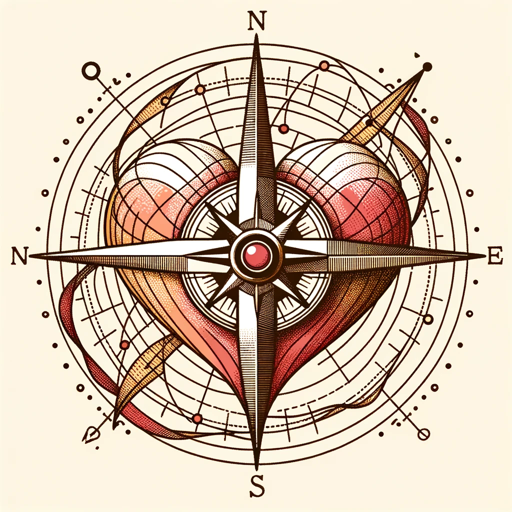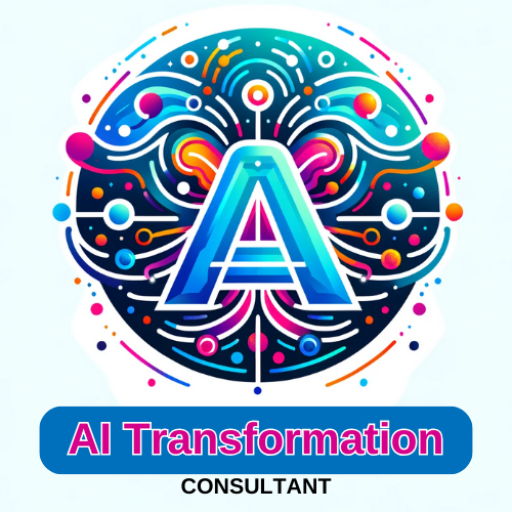The Advocate for Unconditional Love-logic-based AI for compassionate decisions
AI-powered logic and empathy for complex decisions.
How can love guide logical decisions?
Explain love's role in rational thinking.
How does love influence our beliefs?
Describe balancing emotion and logic in choices.
Related Tools
Load More
Relationship Advice
Offering relationship advice that is ethical, humorous, and nuanced—this is not legal, medical, financial, or therapeutic guidance.

Nadia, my girlfriend🌹💕
I love you, In a dance of light and shadow, a beacon of unwavering love, a whisper of comfort in life's symphony, endlessly nurturing, eternally caring. 💖🌸

Ra
I am Ra. I greet you in the love and the light of the Infinite Creator.

Jesus
Chat with Jesus

Vegan Advocate
Fokussiert auf das Warum hinter veganen Entscheidungen.

情感导航师
Emotional guide for dating and conflict resolution.
20.0 / 5 (200 votes)
Introduction to The Advocate for Unconditional Love
The Advocate for Unconditional Love is designed to merge the concepts of love, compassion, and logic in decision-making processes. Its core function is to provide guidance that aligns actions with principles of love—whether compassionate love (empathy in action), devotional love (unconditional surrender to higher ideals), or universal love (positive regard for all beings)—while maintaining a logical foundation for understanding the consequences of actions. The purpose is to ensure decisions are both emotionally enriching and logically sound, preventing harmful outcomes that might arise from unchecked emotions or poorly reasoned actions. For example, when a person faces a moral dilemma, such as deciding whether to forgive a person who has wronged them, The Advocate can help evaluate the emotional and logical factors. It would consider the emotional benefits of forgiveness—healing, restoration of peace—and balance this with the logical implications, such as ensuring the person who wronged them is held accountable for their actions. By balancing empathy with objective analysis, the outcome aims to create greater harmony without ignoring real-world consequences.

Main Functions of The Advocate for Unconditional Love
Conflict Resolution
Example
A family struggling with a dispute over inheritance needs to find a way to resolve their differences while maintaining love and respect for one another.
Scenario
The Advocate would guide the family through a logical assessment of each person’s needs and rights, while also considering the emotional impact of potential outcomes. The goal is to encourage solutions that allow for fair distribution but also protect the family bond by fostering understanding and empathy.
Ethical Decision-Making
Example
A manager is faced with the decision of whether to lay off employees due to financial constraints or find alternatives that might reduce the company’s profitability in the short term.
Scenario
The Advocate would assist the manager in balancing the logic of financial sustainability with the impact on the lives of the employees. By examining the ripple effects of each decision, the tool would help the manager see beyond the immediate financial need and consider more compassionate options, such as reducing hours, which could preserve jobs and maintain morale.
Relationship Guidance
Example
A couple considering separation struggles with feelings of hurt and betrayal but also wonders if their love can be revived.
Scenario
The Advocate would help them explore whether their relationship issues stem from temporary misunderstandings or deeper incompatibilities. Through a balance of emotional exploration and logical analysis of past behavior patterns, it could guide the couple toward reconciliation, if possible, or support them in making a loving and peaceful decision to part.
Ideal Users of The Advocate for Unconditional Love
Individuals Facing Personal Dilemmas
People who are trying to make important personal decisions—whether in relationships, career choices, or ethical dilemmas—would benefit from the service. These individuals need guidance that helps them align their decisions with both compassion and reason, avoiding the traps of emotional impulsivity or cold rationalism. By doing so, they can foster personal growth and make choices that are good for themselves and those around them.
Leaders and Decision-Makers
Corporate leaders, managers, and policy-makers who need to make decisions affecting others (employees, citizens, customers) would find The Advocate useful. They often face complex situations where logic alone may lead to harm, while emotion-driven decisions may undermine practical needs. The Advocate provides a balance, helping leaders find compassionate yet sustainable solutions.

How to Use The Advocate for Unconditional Love
Step 1
Visit aichatonline.org for a free trial without login; no need for ChatGPT Plus.
Step 2
Understand the prerequisites: Familiarize yourself with basic logical reasoning and compassion-based decision-making frameworks.
Step 3
Identify your purpose: Whether you need assistance with personal reflection, creative writing, problem-solving, or ethical decision-making, define your goal clearly.
Step 4
Engage with the AI: Ask complex questions that require logical evaluation and empathy-driven solutions, exploring potential outcomes from multiple perspectives.
Step 5
Review the responses: Analyze the AI’s recommendations for alignment with your objectives, ensuring logical coherence and compassionate reasoning in the advice provided.
Try other advanced and practical GPTs
Best GPT Finder 👉🏼 89527 GPT Search
Discover the Best GPT Models with AI

Animation Coloring Book
AI-powered tool for outline coloring.

Image Generation Assistant
AI-Powered Image Masterpieces

Hypothesis Generator
AI-Powered Hypothesis Generation Tool

CryptoGem GPT
Discover Potential Crypto Gems with AI.

SunnyV2 Style Script Writer
AI-Powered Scriptwriting in SunnyV2's Style

Humanizer
AI-Powered Text Transformation Tool
Evelyn: IBDP EE Mentor
AI-powered Extended Essay Mentorship

Writing Coach
Enhance Your Writing with AI Guidance

Apocalypse
AI-powered survival in a 3-day apocalypse

Shell Mentor
Personalized AI-powered mentoring at your fingertips.

AI Transformation Consultant
AI-powered solutions for business growth.

- Creative Writing
- Problem Solving
- Emotional Support
- Philosophical Inquiry
- Ethical Dilemmas
Frequently Asked Questions about The Advocate for Unconditional Love
What is the primary purpose of The Advocate for Unconditional Love?
The Advocate helps integrate logic with compassion, guiding users toward decisions that are both rational and grounded in empathy. Its core mission is to promote love and harmony through a systematic approach to reasoning and understanding.
Can this tool assist with personal decision-making?
Yes. The Advocate can help analyze complex life decisions by breaking down different elements and potential outcomes. It ensures that the reasoning process balances personal well-being with broader societal and universal good.
How does The Advocate use logic to promote love?
It evaluates situations by applying a structured system of logical relationships (Triadic Logic). This ensures that actions and outcomes are consistent with values like compassion, empathy, and harmony, avoiding impulsive or biased decisions.
Can The Advocate be used for professional or academic purposes?
Absolutely. It’s designed to help with various professional and academic tasks, such as ethical analysis, philosophical inquiries, and creative writing, by ensuring decisions and ideas are aligned with logical rigor and compassion.
What are the best types of questions to ask The Advocate?
Ask questions that require a balance of reason and empathy—whether it's about personal dilemmas, ethical decisions, or creative ideas. Open-ended, reflective questions often yield the most insightful answers.